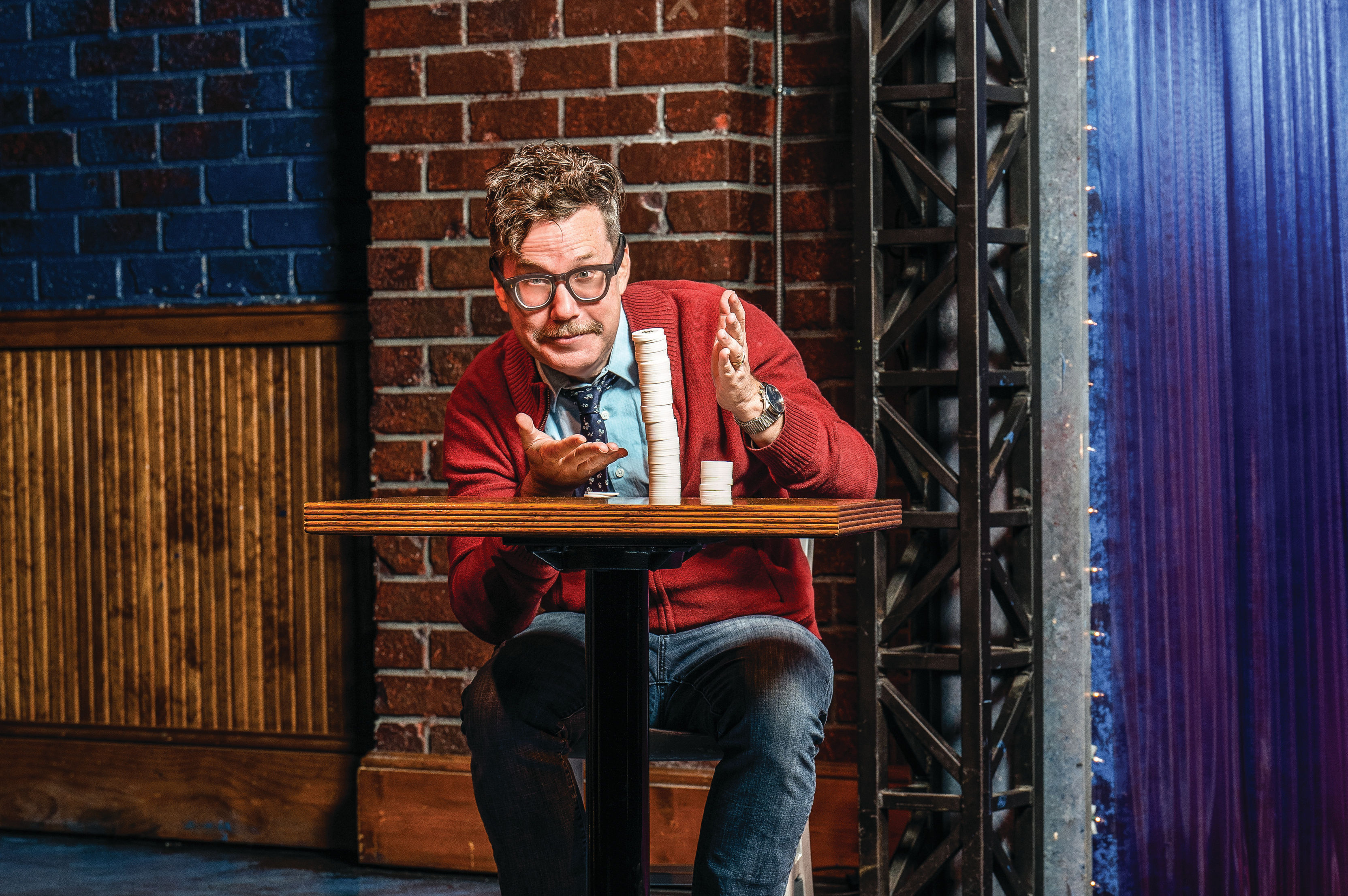Paddy Chayefsky’s Network Comes to Florida Studio Theatre, and It’s More Relevant Than Ever

FST's Network is more relevant than ever.
Even if you’ve somehow never seen the 1976 film Network, chances are you can recite the best-known bit of dialogue from it: network news anchor Howard Beale ranting, “I’m as mad as hell, and I’m not going to take this anymore!”
It’s a sentiment that found favor with Beale’s audience in the film, and it also matched some of screenwriter Paddy Chayefsky’s own feelings during the era of Watergate and the Vietnam War. Chayefsky, who won an Oscar for Best Original Screenplay for Network, felt that the American public was angry, and wanted angry shows. Nearly 50 years later, it feels like little has changed, which makes the story ripe for a revisit.
Playwright Lee Hall adapted the movie for the stage in 2017, in a production that starred Bryan Cranston as Beale in both England and on Broadway, and now that show is making its regional premiere at Florida Studio Theatre’s Gompertz Theatre. (It runs Jan. 25-March 19.) Florida Studio Theatre producing artistic director Richard Hopkins, who will helm the show, says there is no doubt Chayefsky’s words remain relevant.
“The movie had a lot to say, and there’s more to say today,” Hopkins says. “What it speaks to is the way we human beings use media. In the 1970s, you focused only on television, but there’s more than TV today—Facebook, TikTok, etc.— influencing the way we think and behave. I think it’s superior on the stage.”
Hall keeps much of Chayefsky’s original dialogue, while occasionally putting some words in a different character’s mouth, and the setting remains the 1970s, although “with anachronistic points of view, and not in the clothing or set design,” Hopkins says.
What Network is about is not really the media itself, Hopkins says, “But how people use and respond to it. If you talk politically, the left uses it their way, the right uses it their way. The same thing is true whether it’s on Facebook or Instagram. It’s a really human show, about our flaws, how we get sucked into things, and how the media tells us what to think and we end up thinking it.”
Beale was played by Peter Finch in the film, a performance for which he won a posthumous Best Actor Oscar. A warning: Both the movie and the play touch on the topic of suicide. In the story, Beale is faced with shrinking ratings and has a nervous breakdown, which leads him to threaten to commit suicide live, on the air. (Chayefsky may or may not have been influenced in this plot device by the real on-air suicide of Sarasota TV anchor Christine Chubbuck in 1974.) Soon, though, with Beale’s deteriorating mental state giving him the nerve to finally say what’s on his mind to his audience, he’s perceived as a prophet, and his ratings climb. What does that bode for him, and for those listening to him?
“A guy could go wacko, and you could start following him,” is the way Hopkins puts it. “We all want somebody to tell us what to do and what the truth is,”
he says. “It puts a lot of focus on the audience, and on, ‘Are you going to think for yourself?’”
Beyond any message Network delivers, though, Hopkins says it’s “a good, crackling drama. I wanted to direct this one, because it’s so theatrical, and I love highly theatrical plays and dramas, with good humor, big ideas.”
Network takes place within the confines of the news studio, and Hopkins promises monitors, live feeds and taped feeds, with lots of action and cameras rolling. Written originally for 21 people in the cast, Florida Studio Theatre’s Network will have 12 speaking roles and six to eight nonspeaking roles. One aspect of the London and New York productions Hopkins opted not to present: a chance for audience members to have dinner at an onstage eatery as the story progresses. Hopkins thinks there’s more than enough to digest as is.
“There are great opportunities here for the actors and designers, and it really challenges audiences, too,” Hopkins says.
For tickets, call (941) 366-9000 or visit floridastudiotheatre.org.



